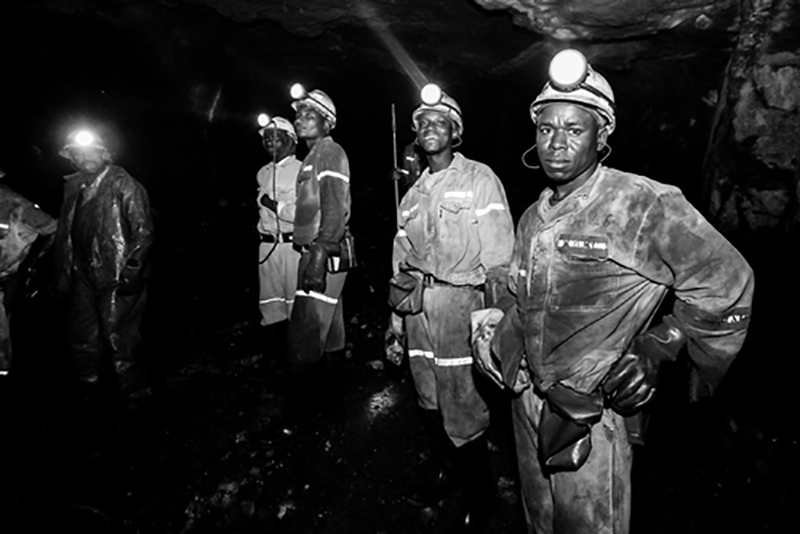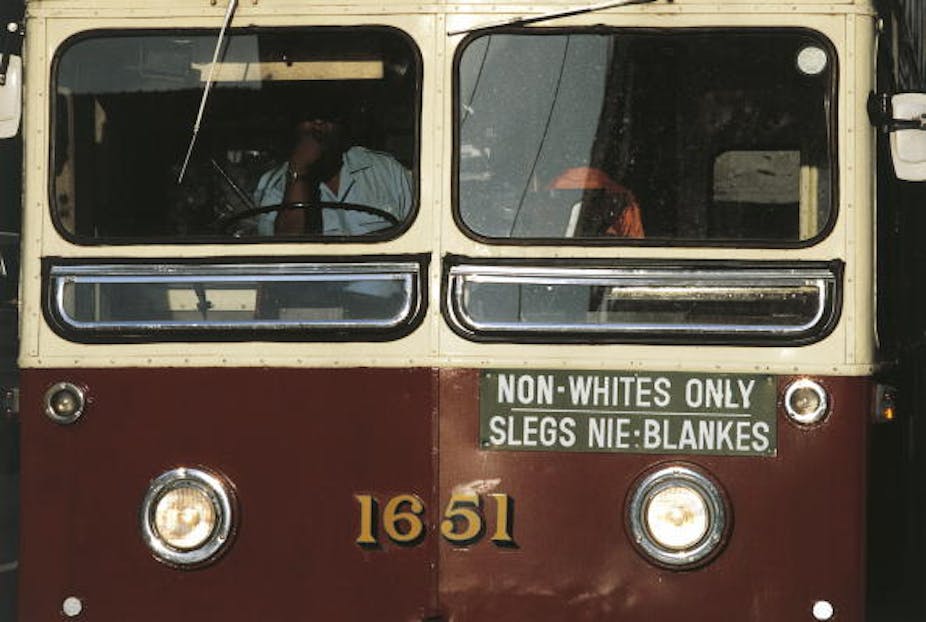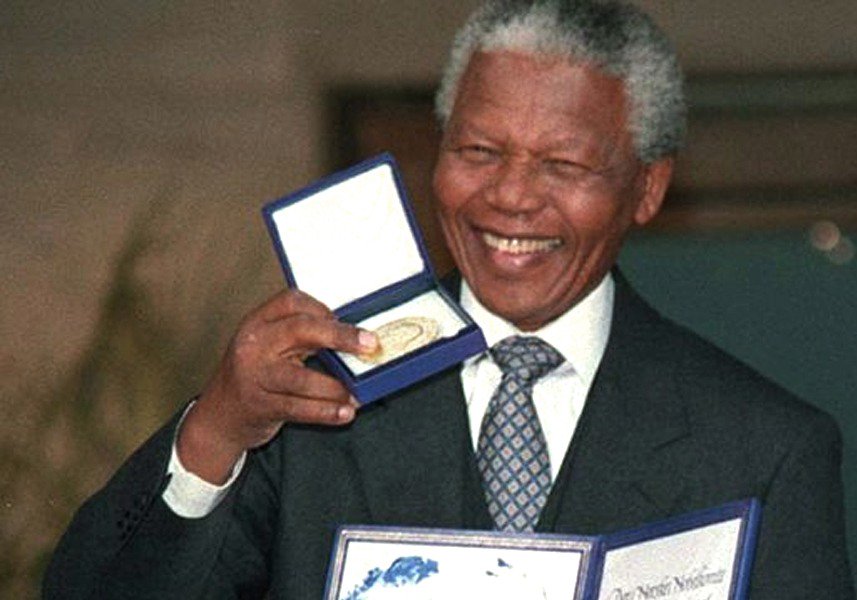The Mandela Story: From Prison to Precidency
"Education is the most powerful weapon which you can use to change the world." - Nelson Mandela
Childhood
Before apartheid formally began in 1948, British colonial rule in South Africa was marked by widespread racial oppression, loss of ancestral homes, poverty, forced labor migration, violence, and systemic inequality, and the most important one political marginalization, i.e. no voice in governance, particularly against indigenous African communities.

Forced Labour
Then on July 18, 1918; a child was born under the African sky who would one day move mountains. His name was Rolihlahla Mandela. He was born in the village of Mvezo and came into a world shaped by ancient tradition and rising colonial rule. The avenger of South African apartheid was born to Noqaphi Nosekeni.
His father, Gadla Henry Mphakanyiswa, was a respected chief in the Thembu nation. He was a proud and principled man, a man who walked tall even as British rule tried to bend him. When Gadla was stripped of his chieftainship for standing against a magistrate's order, young Mandela witnessed for the first time how dignity could challenge power. This quiet lesson in resistance would shape the man he would become.
At the age of nine, Mandela's world shifted. His father died of illness, and he was sent to live in Qunu under the guardianship of the Thembu regent, Jongintaba Dalindyebo. It was a new world: structured, royal, and filled with expectation. Mandela sat in circles of elders, listening more than speaking, absorbing the essence of leadership, humility, and duty.
His schooling brought him a name that was never his own. “Nelson,” his teacher called him on the first day—a colonial tradition that replaced African names with British ones, stripping identity in a single breath. He didn't protest, but inside, something quietly resisted.

Nelson Mandela with his class at Healdtown College circa 1937 to 1938. Mandela is in the back row, fifth from right.
As he grew, so did his hunger—not just for knowledge but for justice. He studied at Healdtown, a Wesleyan secondary school, and later at Fort Hare, South Africa's elite university for Black students. Here, he protested for the first time, opposing student council policies. He was expelled, not for violence, but for his audacity to oppose the policies.
When Jongintaba arranged a marriage to secure his future, Mandela ran away to Johannesburg instead, choosing freedom over comfort. There, amid the gold mines and dust, he became a law clerk and a man with a mission. The city revealed the cruelty of apartheid in full glare: whites only buses, job reservations, each and every amenity segregated on the basis of colors and pass laws. Injustice wasn't theoretical—it was practical.

Racial Segregation in Transport
Youth
Mandela worked days at a law firm under a white attorney, learning the rules of the system he would one day fight to dismantle. Nights were spent in libraries, pouring over cases, sharpening his mind like a dagger which would end the apartheid.
In 1944, when he was merely 26 years old, Mandela co-founded the African National Congress Youth League (ANCYL) with his closest comrades—Oliver Tambo and Walter Sisulu. They were tired of passive resistance, they wanted mass action, boycotts, strikes and civil disobedience movements.

Nelson (19 y/o)
That same year, Mandela married Evelyn Mase, a nurse, and for a time, he tried to balance family and fire. But revolution demands sacrifice. The Defiance Campaign in 1952 was a turning point—thousands deliberately broke apartheid laws to clog the jails. Mandela, leading from the front, was arrested, banned, and surveilled. Yet he kept building: opening South Africa's first Black law firm with Oliver Tambo, defending activists, standing tall in courtrooms where the law was rigged.
In 1955, the Freedom Charter was formulated in Kliptown, declaring that “South Africa belongs to all who live in it.” It was the first breath of a future that always seemed impossible. The oppressors responded with fury, in the form of mass arrests. Mandela was charged with treason in 1956.
Amid this storm, Mandela's personal life fractured. Evelyn, weary of his political obsession, left. Their marriage had become another casualty of the struggle. Soon after, he met Winnie Madikizela—bold, magnetic, and willing to fight beside him. Their love would become both a shield and a battlefield in the years ahead.
By 1960, tragedy struck at Sharpeville—A crowd of approximately 5,000 to 7,000 people gathered outside the police station in Sharpeville to protest the pass laws, which required black South Africans to carry identification documents. The police opened fire on the unarmed crowd, killing 69 people and injuring 180. The incident, which included the deaths of 8 women and 10 children, significantly increased international pressure on South Africa's apartheid regime The African National Congress was banned. Mandela went underground, his life now lived in shadows and safe houses. He was no longer just a lawyer. He was an outlaw.
In the shadows of repression, Mandela co-founded Umkhonto we Sizwe, Spear of the Nation, the ANC's armed wing. "Only through force," he believed now, "can we make the state listen." He traveled secretly to other African nations and even to London, seeking support. But in 1962, he was arrested and sentenced to life imprisonment during the Rivonia Trial, which involved prosecution of several big leaders of ANC and its armed wing on charges of sabotage and conspiracy to overthrow the government. For 27 long years, Mandela endured the bitter cold of Robben Island, breaking rocks by day and reading by night.
The 1980s saw a crumbling apartheid regime, choking on its own brutality and international isolation. Calls to “Free Mandela” echoed from Cape Town to Chicago. In 1990, under mounting pressure, President F.W. de Klerk unbanned the ANC and released Mandela.

Free Mandela Movement
Now came the year of revolution, 1994, South Africa's first democratic election. Nelson Mandela became the first Black President of a free South Africa. He had walked from the fire of Sharpeville to the glory of Pretoria, not as a warrior, not as a ruler, but as a servant of the people, bearing their pain, their hopes, and their future.
Presidential Regime
Mandela's African National Congress (ANC) party won 252 of the 400 seats in the first democratic elections of South Africa's history and thus he became South Africa's first Black President after more than three centuries of apartheid.
The sun rose gently over Pretoria on May 10th, 1994, casting golden light across the Union Buildings, once a symbol of white power, now the birthplace of a new nation. The air buzzed not with fear or gunfire, as it had so often in South Africa's past, but with the citizens of South Africa cheering and applauding for freedom they once longed for.
Mandela's first Presidential Speech
Nelson Rolihlahla Mandela stood tall, dignified, calm and proud. He was a man who had walked through fire, through prison gates, and now stood at the practical of a theory which cost many sacrifices, in terms of time, dignity and even innocent lives.
Before him stood generals in former apartheid uniforms, now saluting him. Behind him sat leaders from across the globe, who once condemned him as a terrorist, now applauding him as a statesman. And before the people of South Africa, Mandela took the oath of office. He spoke not of revenge, but of unity; not of bitterness, but of healing.
“Never, never and never again shall it be that this beautiful land will again experience the oppression of one by another.”The crowd erupted, flags waved, people wept, children danced in the streets.
And in that moment, South Africa was reborn, not perfect, not healed, but free. The prisoner had become the president.
And Mandela, once hunted and caged, now held the power of a nation, yet chose to lead with humility, peace, and the unshakable belief that forgiveness was stronger than fear.
Then Mandela did, what he promised for, what a good leader would do for their country.
Mandela did what a very few leaders could: he invited his former enemies into the room. He formed a Government of National Unity that included members of the very regime that had imprisoned him. He appointed F.W. de Klerk, the last apartheid president, as his deputy. It was not weakness—it was strategic peace. He showed South Africa that cooperation could replace conquest, and that democracy meant more than the victory of one group over another. This is how to establish unity and make sure that the racial discrimination ends once and for all.

F.W. de Klerk(left) and Nelson Mandela(right)
The Springboks, the South African team for men's Rugby, once hated by Black South Africans, because it only consisted of white men, now wore the green and gold jersey for the 1995 Rugby World Cup. It was a chance for Mandela to test his vision of unity. On the day of the final, watched by millions, Mandela stepped onto the field wearing a Springbok jersey, the symbol of Afrikaner pride, and handed the trophy to the white captain, François Pienaar.
Beyond the symbolism, Mandela tackled the crushing poverty and inequality apartheid left behind.Under his presidency:
- By 1999, over 3 million homes had been connected to the electricity grid, many of them in previously unserved rural areas.
- 5.2 million South Africans gained access to safe drinking water during President Mandela's administration.
- The government constructed over 750,000 homes during Mandela's presidency.
- The Mandela government introduced free healthcare for all children under six and pregnant women in 1994.
Achievements
Mandela's biggest achievement was his thought process, love towards humanity, humans, not only of his community or race, but everyone.
Mendela shared in his autobiography 'Long Walk to Freedom' shared that he believes that no one is born hating another person because of the colour of his skin, or his background, or his religion. People must learn to hate, and if they can learn to hate, they can be taught to love, for love comes more naturally to the human heart than its opposite. This was his thought process, his belief and confidence over humanity.
He further shared an experience when he was put in prison on the grounds of anti-apartheid protests he was carrying out. He said, “Even in the grimmest times in prison, when my comrades and I were pushed to our limits, I would see a glimmer of humanity in one of the guards, perhaps just for a second, but it was enough to reassure me and keep me going. Man's goodness is a flame that can be hidden but never extinguished.”
Mr. Mandela added in his book, "I am not truly free if I am taking away someone else's freedom, just as surely as I am not free when my freedom is taken from me. The oppressed and the oppressor alike are robbed of their humanity."
Mr. Mandela's efforts for the basic rights of their community is recognised internationally and he has received many awards like Bharat Ratna, Nobel Peace Prize, Presidential Medal of Freedom, Congressional Gold Medal, and many more.

Mandela receiving Nobel Prize
Mandela's work, thoughts, sacrifices and impacts cannot be justified with any number of awards, prizes or money but only by respect, by efforts from today's youth to be a fraction of his personality, by contributing to his goal of overall humankind development and putting in efforts, no matter how small they are to remove injustice, poverty, food security and other problems which will only be solved if all the boundaries and walls between the humankind are removed, if every human makes a collective effort, not for the sake of their own benefit, but for the greater good.
After Life
Mandela revolutionised the world while he was alive, but even today, 12 years after his sad demise, his polarization is still causing real life impacts in the world, majorly under the umbrella of Mandela Day. This is why it was officially declared by the United Nations in November 2009, with the first UN Mandela Day held on 18 July 2010.
Mandela Day is a global call to action that celebrates the idea that each individual has the power to transform the world, the ability to make an impact.

Mandela Day is an annual global celebration that takes place on 18 July to honour the life and legacy of Nelson Mandela. It is celebrated on Mendela's birthday. This day is a call to action for individuals, communities, and organisations to take time to reflect on Mandela's values and principles and to make a positive impact in their own communities.
The theme of Mandela Day 2025 is “It is in Your Hands: Combat Poverty and Inequity.”
Mandela Day was found on the principle that we can all give a little bit of time to have a positive impact on the lives of others. Therefore, Mandela Day is an opportunity to help others in any way we can and think about how we can make a positive impact overall.
Just like Mandela devoted 67 years of his life to public service (from 1942 to 2009), people from all over the world are encouraged to devote 67 minutes of their time to do something which aids the world to achieve peace, growth, universal brotherhood and does good to their own community too.
Some real life impacts which have been made possible due to Mandela Day are:-
- 100 young minds from Diepsloot (a township in South Africa) and surrounding areas will gather for a coding tournament which is designed to equip these young minds with digital skills. Participants will use RANGERS, a mobile coding game developed by Tangible Africa, which teaches the foundations of coding without needing laptops or internet access. Mandela's values to life by promoting education, opportunity and innovation.
- Lions Cricket and Ashraful Aid are going to conduct one of the largest Mandela Day volunteering event in 2025. The goal this year is to pack 5,000 food hampers that will reach more than 20,000 vulnerable South African women, elderly and children.
- The Growing Seeds foundation staff contributed to Mandela Day 2025 by cleaning a child aftercare facility, planting a vegetable garden, installing grass and play sand by the playground area. This shows that each one of us has ability to make a difference no matter how small the act is.
- On the occasion of Mandela Day 2023, Skillcraft Agencies recently donated a toolkit to the maintenance crew at Sharicrest Primary School in Lenasia, south of Johannesburg. The donation helps the Mandela Day Libraries project, which aims to improve literacy across South Africa by converting shipping containers into libraries, and benefits more than 80,000 children daily.
- For Mandela Day 2022, high school students donated non-perishable food items to a shelter for Johannesburg's homeless people. Moreover, students from grade 3 made sandwiches which were sent to an informal settlement in Kliptown. This is how the feeling of donation, charity and empathy should be initialized in the young generation.
These are some of the zillions of impacts of Mandela Day on communities and lifestyle of people ranging from 1 year old to 90 years old.
(Source of all the impacts
- Coding4Mandela: Empowering the Next Generation of Tech Leaders
- Mandela Day 2025: Building Solidarity One Food Hamper at a Time
- Planting Hope: Mandela Day 2025 Starts Early in Berea, Johannesburg
- Lenasia School Gets a Mandela Day Gift
- Mandela Day 2022 at Saheti School)
This is how Mandela not only changed lives when he was alive, but his impacts are still alive, within our society.
Living on the ideals of Nelson Mandela, we grow better when we grow together, Mandela Day is not just a day dedicated to do better for anyone except ourselves, it is a day which should make us realise that we have to contribute each and every second of our life to do better for everyone in this world, without judging them by their caste, creed, race, background, condition, anything.
Mandela Day should make us realise that we all are equals, we all are contemporaries but not competitors. Thus, we should help each other out wherever and whenever we can. We should make sure that whatever we do, is not done with the menial aim of making our life better but with the aim of affecting zillions of life and making them better.
Let's start to make the world a better place, not for ourselves, but for everyone, not just this July 18th or other July 18th's to come but every single day.
Let us Make Every Day A Mandela Day!
